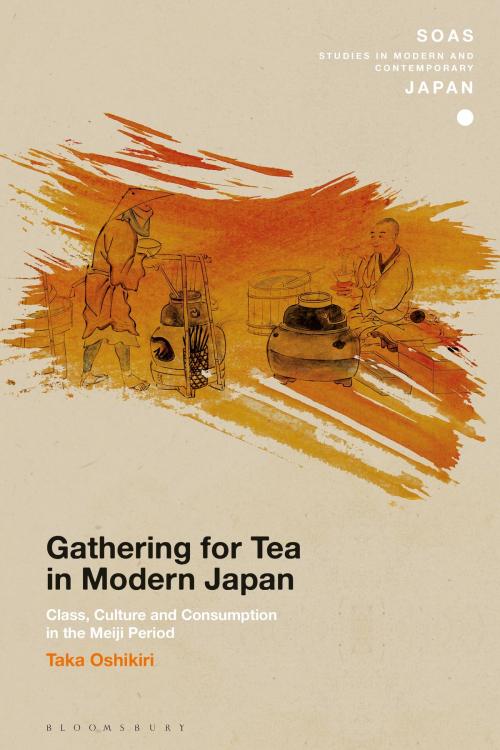Gathering for Tea in Modern Japan
Class, Culture and Consumption in the Meiji Period
Nonfiction, History, Asian, Japan, Modern, 19th Century| Author: | Taka Oshikiri | ISBN: | 9781350014039 |
| Publisher: | Bloomsbury Publishing | Publication: | June 28, 2018 |
| Imprint: | Bloomsbury Academic | Language: | English |
| Author: | Taka Oshikiri |
| ISBN: | 9781350014039 |
| Publisher: | Bloomsbury Publishing |
| Publication: | June 28, 2018 |
| Imprint: | Bloomsbury Academic |
| Language: | English |
By examining chanoyu - the custom of consuming matcha tea - in the Meiji period, Gathering for Tea in Modern Japan investigates the interactions between intellectual and cultural legacies of the Tokugawa period and the incoming influences of Western ideas, material cultures and institutions. It explores the construction of Japan's modern cultural identity, highlighting the development of new social classes, and the transformation of cultural practices and production-consumption networks of the modern era.
Taka Oshikri uses a wealth of Japanese source material - including diaries, newspaper, journal articles, maps, exhibition catalogues and official records – to explore the intricate relationships between the practice and practitioners of different social groups such as the old aristocracy, the emerging industrial elite, the local elite and government officials. She argues that the fabrication of a cultural identity during modernisation was influenced by various interest groups, such as the private commercial sector and foreign ambassadors.
Although much is written on the practice of chanoyu in the pre-Tokugawa period and present-day Japan, there are few historical studies focusing on the late 19th and early 20th centuries. Gathering for Tea in Modern Japan thus makes a significant contribution to its field, and will be of great value to students and scholars of modern Japanese social and cultural history.
By examining chanoyu - the custom of consuming matcha tea - in the Meiji period, Gathering for Tea in Modern Japan investigates the interactions between intellectual and cultural legacies of the Tokugawa period and the incoming influences of Western ideas, material cultures and institutions. It explores the construction of Japan's modern cultural identity, highlighting the development of new social classes, and the transformation of cultural practices and production-consumption networks of the modern era.
Taka Oshikri uses a wealth of Japanese source material - including diaries, newspaper, journal articles, maps, exhibition catalogues and official records – to explore the intricate relationships between the practice and practitioners of different social groups such as the old aristocracy, the emerging industrial elite, the local elite and government officials. She argues that the fabrication of a cultural identity during modernisation was influenced by various interest groups, such as the private commercial sector and foreign ambassadors.
Although much is written on the practice of chanoyu in the pre-Tokugawa period and present-day Japan, there are few historical studies focusing on the late 19th and early 20th centuries. Gathering for Tea in Modern Japan thus makes a significant contribution to its field, and will be of great value to students and scholars of modern Japanese social and cultural history.















